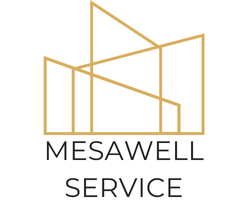Mastering Legal Compliance: Key Tactics for UK Companies Transitioning to Cloud-Based HR Solutions
As UK businesses continue to embrace the benefits of cloud-based HR solutions, ensuring legal compliance is crucial to avoid costly mistakes and maintain trust with employees and stakeholders. Here’s a comprehensive guide to help you navigate this transition smoothly.
Understanding the Importance of Legal Compliance in HR
Legal compliance is the backbone of any HR system, whether traditional or cloud-based. It ensures that all HR processes and data handling adhere to relevant laws and regulations, such as the UK’s Data Protection Act and employment law.
Have you seen this : Essential Legal Factors UK Businesses Need to Know About Biometric Authentication
“Compliance is not just about avoiding fines; it’s about building trust with your employees and stakeholders. When you demonstrate a commitment to legal standards, you create a more secure and respectful work environment,” notes Alex Scroxton, Security Editor at TechTarget.
Key Legal Considerations for Cloud-Based HR Solutions
When transitioning to a cloud-based HR solution, several legal considerations come into play.
Also read : Essential Legal Guidance for UK Businesses Launching Renewable Energy Initiatives
Data Protection
Data protection is a critical aspect of HR management. The UK’s Data Protection Act and the General Data Protection Regulation (GDPR) dictate how personal data must be handled.
- Data Security: Ensure that your cloud HR software provider has robust security measures in place, such as role-based access controls, encryption, and regular backups[3][4][5].
- Data Privacy: The system must comply with GDPR and the Data Protection Act, including the right to erasure, the right to access, and the right to rectification.
- Audit Trails: Automated audit trails can validate the legal admissibility of electronic documents and ensure compliance with data privacy regulations[2].
Employment Law
Employment law governs various aspects of the employer-employee relationship. Your cloud HR system should support compliance with these laws.
- Contractual Arrangements: The system should manage contractual arrangements, including terms and conditions, and ensure that all employment contracts are legally binding and up-to-date[4].
- Absence and Performance Management: It should track absences, manage performance reviews, and ensure that all processes are fair and compliant with employment law[5].
Financial and Payroll Compliance
Financial compliance is essential to avoid legal and financial repercussions.
- Payroll Processing: The system must automate payroll processes while ensuring compliance with HMRC regulations, including pension auto-enrolment and RTI reporting[5].
- Financial Records: It should maintain accurate financial records, including employee benefits and expenses, to ensure transparency and compliance.
Choosing the Right Cloud-Based HR Software
Selecting the right cloud-based HR software is pivotal for ensuring legal compliance. Here are some key factors to consider:
Industry Compliance Guidelines
Ensure the software complies with industry-specific guidelines and regulations.
- BS10008 Compliance: For example, Apogee’s HR Information System ensures compliance with BS10008, which is crucial for the legal admissibility of electronic documents[2].
Automation and Integration
Automation and integration can streamline processes and reduce the risk of non-compliance.
- Automated Retention Management: The system should automatically manage document retention schedules to ensure compliance with legal requirements[2].
- Integration with Legacy Systems: Smooth integration with existing systems can help in maintaining continuity and compliance[2].
Security and Access Control
Robust security features are essential for protecting sensitive HR data.
- Role-Based Access Controls: Ensure that only authorized employees can access certain information to prevent internal data breaches[2][3][5].
- ISO Certifications: Look for software vendors with ISO27001 and ISO9001 certifications, which indicate high standards of security and quality[2].
Practical Steps for Ensuring Compliance
Here are some practical steps to ensure your transition to a cloud-based HR solution is compliant with legal requirements:
Conduct a Thorough Software Comparison
Before selecting a cloud HR software, conduct a thorough comparison to ensure it meets your legal compliance needs.
| Feature | Apogee HRIS | Civica People Hub | Access PeopleXD |
|---|---|---|---|
| Data Security | Role-based access controls, encryption | Role-based access controls, encryption | Role-based access controls, encryption |
| Compliance | BS10008 compliance, automatic retention management | HMRC compliance, payroll processing | HMRC compliance, payroll processing |
| Integration | Integration with legacy systems | Integration with payroll and time management software | Integration with other applications |
| Employee Management | Centralized HR functions, employee engagement | Recruitment, onboarding, performance management | Recruitment, onboarding, performance management |
| Security Certifications | ISO27001, ISO9001 | Not specified | Not specified |
Implement Robust Data Protection Policies
Develop and implement robust data protection policies that align with GDPR and the Data Protection Act.
- Data Minimization: Collect only the necessary personal data.
- Data Accuracy: Ensure that personal data is accurate and up-to-date.
- Data Retention: Implement policies for the retention and deletion of personal data.
Train Your Employees
Training your employees on the new system and legal compliance is crucial.
- Compliance Training: Provide regular training sessions on employment law, data protection, and other relevant legal aspects.
- User Guides: Offer comprehensive user guides and support materials to help employees understand the system and its compliance features.
Regular Audits and Updates
Regular audits and updates can help ensure ongoing compliance.
- Audit Trails: Use automated audit trails to monitor all actions taken on HR files[2].
- Software Updates: Ensure that your cloud HR software is regularly updated to comply with changing regulatory requirements[3].
Real-World Examples and Success Stories
Several UK businesses have successfully transitioned to cloud-based HR solutions while ensuring legal compliance.
Case Study: Civica People Hub
Civica People Hub has helped numerous medium to large businesses, including those in the public sector and higher education, to streamline their HR processes while ensuring compliance.
“Civica People Hub has been instrumental in simplifying and connecting every aspect of our people management. The automation and analytics features have not only improved efficiency but also ensured that we are fully compliant with all relevant laws and regulations,” said a representative from a local government organization.
Case Study: Access PeopleXD
Access PeopleXD, with its AI-embedded features, has supported businesses in managing their entire employee lifecycle while maintaining legal compliance.
“PeopleXD has been a game-changer for us. The integrated payroll software and automated compliance reporting have reduced our administrative burdens significantly, allowing us to focus on strategic HR initiatives,” noted an HR manager from a medium-sized business.
Transitioning to a cloud-based HR solution can be a transformative step for any business, but it must be done with a keen eye on legal compliance. By understanding the key legal considerations, choosing the right software, and implementing practical steps for compliance, you can ensure a smooth and legally sound transition.
“Cloud-based HR solutions offer immense benefits, but compliance should never be compromised. With the right approach, you can leverage these solutions to enhance your HR processes while maintaining the highest standards of legal compliance,” advises Sebastian Klovig, Data Ethics Editor.
As you continue reading and exploring the world of cloud-based HR solutions, remember that compliance is an ongoing process that requires regular audits, updates, and training. By mastering these tactics, you can ensure your business remains compliant, efficient, and forward-thinking in the long term.











